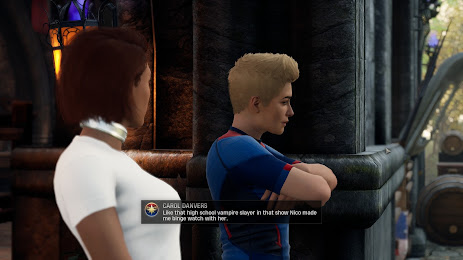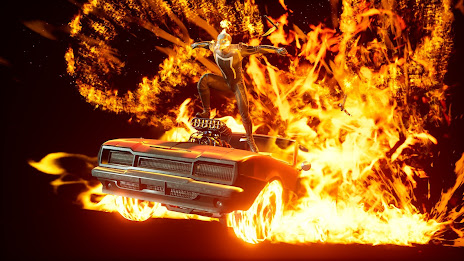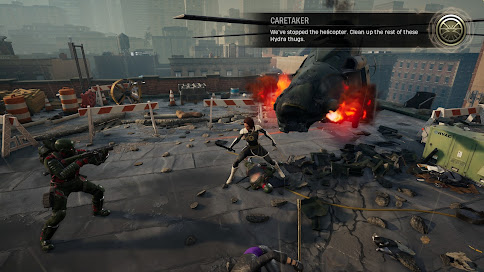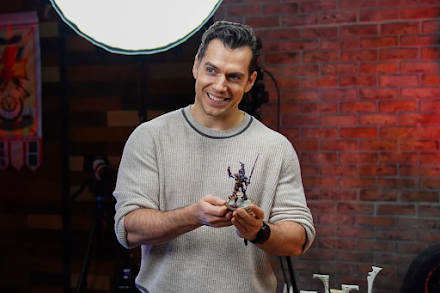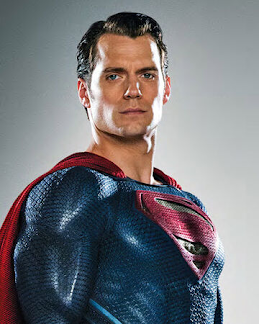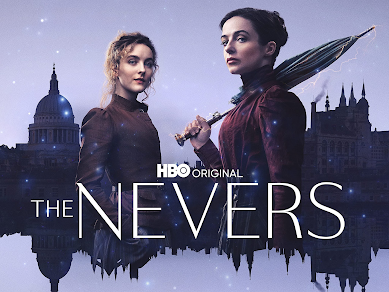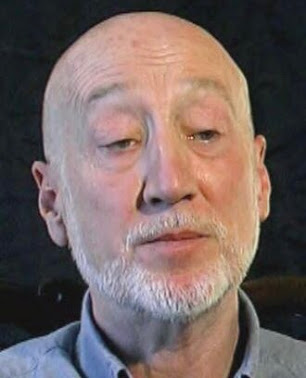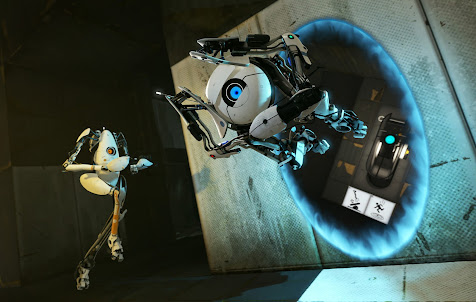Wednesday, 28 December 2022
Midnight Suns
Monday, 26 December 2022
Where to Start with Star Trek? (revised)
This is a revision of an article I originally wrote two and a half years ago, here.
The recent arrival of Star Trek: Strange New Worlds has spurred a renewed interest in the venerable SF franchise. New viewers want to check out the older material, but the sheer amount of it is daunting. By the start of 2023, no less than 41 seasons of television will have aired in the franchise, totalling 872 episodes spread across eight separate series airing over fifty-seven years (and counting). It would take you more than 621 hours (or almost 26 days, non-stop) to watch all of that material. In addition, there are 13 feature films in the mix, as well as a plethora of video games and hundreds of novels, audio dramas and fan films. If you want to check out this mass of material where do you start?
There are several different approaches you can take and I’ll run through a few of them below. The one thing I would say first is that, with a few notable exceptions, Star Trek is mostly an episodic franchise, where each episode stands alone with its own beginning, middle and end. That starts to shift in Deep Space Nine, which introduces more serialised elements, and by the time of Discovery and Picard the series has become fully serialised, but for the most part the different series are episodic and in fact designed for each episode to be enjoyed by themselves.
Before we get into the lists, it might be worthwhile briefly brushing up on what each series is about.
Star Trek: The Original Series
Animated: 1973-74 • 22 episodes • 2 seasons
Also called the original series, the classic series or just Star Trek, this series follows the adventures of Starfleet Captain James T. Kirk and the crew of the Constitution-class starship USS Enterprise. They explore strange new worlds, encounter new alien life and seek to uphold the utopian values of the United Federation of Planets in the mid-23rd Century whilst dealing with recurring enemies, including the Klingons and Romulans. The story of this series continues in Star Trek: The Animated Series (which is the same, but as a cartoon) and then in the first six Star Trek feature films.
The first episode of the series, The Cage, was filmed two years before the rest of the series and features a significantly different cast of characters (who do go on to play major roles in some of the films and in Star Trek: Discovery, which revisits the same time period).
Star Trek: The Next Generation
1987-94 • 178 episodes • 7 seasons • 4 films (1994-2002)
Set in the mid-to-late 24th Century, roughly 100 years after the events of the original series, The Next Generation focuses on a brand-new, much larger and vastly more sophisticated Galaxy-class USS Enterprise under the command of Captain Jean-Luc Picard. The emphasis remains on exploring new worlds and meeting new races. Although the series mostly remains episodic, recurring and more serialised elements creep in towards its end. Most notable is the introduction of the Borg, an overwhelmingly powerful cybernetic threat which remains a key enemy through the next several series, and the Cardassians, a mid-ranking antagonistic enemy. The story of this series continues in the seventh through tenth Star Trek feature films and the sequel-series Star Trek: Picard, set thirty years later.
Star Trek: Deep Space Nine
1993-99 • 176 episodes • 7 seasons
To date, the only Star Trek series not set on a starship. Instead, the focus is on Deep Space Nine, a Federation outpost established on an abandoned Cardassian space station orbiting the planet Bajor. The Cardassians conquered and ruled Bajor with an iron fist for forty years before withdrawing, leaving the planet in ruins. The Federation are helping them rebuild, their efforts spearheaded by Commander Benjamin Sisko. Unlike most Star Trek series, which focuses on the Federation and Starfleet crewmembers, this series has a large number of civilian and alien recurring characters. Bajor becomes unexpectedly important when a stable wormhole leading to the remote Gamma Quadrant of the galaxy is discovered, allowing the planet to benefit from increased trade (to the fury of the Cardassians). Early seasons revolve around renewed Cardassian/Bajoran tensions before the introduction of the Dominion, the alien alliance which rules the Gamma Quadrant and is unhappy with the Federation poking around its back yard. Later seasons are more heavily serialised and see the outbreak of full-scale war between the Federation and the Dominion.
Star Trek: Voyager
1995-2001 • 172 episodes • 7 seasons
This series opens when the USS Voyager is flung 75,000 light-years across the galaxy to the Delta Quadrant and has to return home, which is estimated will take over seventy years at maximum warp. Captain Kathryn Janeway and her crew seek to find faster ways home with any means at their disposal, whilst upholding Federation values in a desperate corner of space where no one even knows who the Federation are.
Star Trek: Enterprise
2001-05 • 98 episodes • 4 seasons
A prequel series taking place about a century before the events of The Original Series, this show takes place before the Federation or Starfleet even exist. Instead, it follows the adventures of the NX-01 Enterprise, Earth’s first experimental spacecraft with a Warp 5 drive. The series sees the crew trying to engage in interstellar diplomacy, exploration and commerce with much more primitive technology than even in Kirk’s time, whilst also trying to deal with problems such as a brewing conflict between the Andorians and Vulcans, and Earth’s first fumbling dealings with the Klingons and Romulans. The series is almost completely episodic for its first two years, but in its third season explores a series-long arc where Enterprise has to search for aliens who carried out a devastating sneak attack on Earth. The final season is divided into shorter arcs revolving around the formation of the Federation.
2009-16 • 3 films
A series of three films (Star Trek, Into Darkness, Beyond) produced by J.J. Abrams, these films are set in an alternate timeline created by time travel. Spock (from the original series) is blasted back in time by his failure to stop the destruction of the Romulan homeworld, pursued by a vengeful Romulan crew. This results in alterations to the timeline, such as a younger James T. Kirk and his fellow crewmembers joining forces and taking command of the Enterprise years earlier than in the original timeline and getting into fresh, new adventures in the mid-23rd Century.
Star Trek: Discovery
2017 onwards • 55 episodes • 4 seasons (to date)
Another prequel series, this time taking place ten years before the events of The Original Series. The focus is on Michael Burnham, the first officer of the USS Shenzhou who badly fumbles a confrontation with the Klingons, inadvertently leading to a massive war. A disgraced Burnham is assigned to the USS Discovery, a highly experimental starship with unusual technology and an oddball, maverick captain, where she is offered the chance to atone for her mistakes.
2020 onwards • 20 episodes • 2 seasons (to date)
A sequel series set at the end of the 24th Century, Star Trek: Picard picks up story elements left dangling from the end of The Next Generation, Deep Space Nine and Voyager, as well as exploring events in the original timeline after the destruction of Romulus (in the original timeline).
This order is not exhaustive but what it does is provide a snapshot of the different series and some of the strongest stand-alone episodes which hold up well today. These episodes are stand-alones (not part of multi-episodic arcs) and are designed to showcase some of the different types of storytelling the series indulges in. A viewer can jump from these episodes into the rest of that series if they like what they see.
The Animated Series is effectively a continuation of The Original Series and it would be hard to recommend individual episodes from Enterprise, Discovery or Picard due to their heavy serialisation (Picard is also best-watched having seen some or all of The Next Generation first).
- Star Trek: The Original Series, The City on the Edge of Forever
- Star Trek: The Original Series, The Trouble with Tribbles
- Star Trek: The Original Series, Space Seed
- Star Trek II: The Wrath of Khan
- Star Trek: The Next Generation, The Measure of a Man
- Star Trek: The Next Generation, Q Who?
- Star Trek: The Next Generation, The Inner Light
- Star Trek: Deep Space Nine, The Visitor
- Star Trek: Deep Space Nine, Far Beyond the Stars
- Star Trek: Deep Space Nine, In the Pale Moonlight*
- Star Trek: Voyager, Eye of the Needle
- Star Trek: Voyager, Message in a Bottle
This approach simply has the viewer sampling the first episode of each version of the series to see what grabs their attention straight away, and from there they can choose which series to watch first:
- Star Trek: The Original Series, The Cage (1964)
- Star Trek: The Original Series, Where No Man Has Gone Before (1966)
- Star Trek: The Animated Series, Beyond the Farthest Star (1973)
- Star Trek: The Next Generation, Encounter at Farpoint (1987)
- Star Trek: Deep Space Nine, The Emissary (1993)
- Star Trek: Voyager, Caretaker (1995)
- Star Trek: Enterprise, Broken Bow (2001)
- Star Trek: Discovery, The Vulcan Hello (2017)
- Star Trek: Picard, Remembrance (2020)
- Star Trek: Lower Decks, Second Contact (2020)
- Star Trek: Prodigy, Lost and Found (2021)
- Star Trek: Strange New Worlds, Strange New Worlds (2022)
AKA the “completionist” approach. This may be the approach everyone ends up taking once they’ve been sucked into the material, but I wouldn’t recommend it for a first run-through. This approach basically means watching the series in order of release and is the best for enjoying the series as it originally aired and was intended (just somewhat compressed).
The primary weakness of this approach is having to watch The Original Series in full before the more recent shows. The original show is certainly great from the perspective of a 1960s TV series and also has many outstanding episodes that have withstood the test of time, but it also has a lot of episodes that…have not. The series underwent an in-depth HD remastering process in 2006 which saw the film quality improved and revamped CG effects added to make the visual quality of the episodes more acceptable to modern audiences, although obviously the writing and performances were not affected.
You can tweak this order for simplicity: there’s nothing stopping you from watching all six films featuring the original cast before watching The Next Generation, and Deep Space Nine and Voyager are divorced from one another almost completely, so you could watch DS9 in full before switching to Voyager. TNG and DS9 do have a few more notable crossovers in terms of characters and storylines, but it also wouldn’t be the end of the world if you finished watching TNG in full before watching DS9.
- Star Trek: The Original Series Pilot, The Cage (made in 1964, but didn’t air until later as part of the original series)
- Star Trek: The Original Series Season 1-3 (1966-69)
- Star Trek: The Animated Series Season 1-2 (1973-74)
- Star Trek: The Motion Picture (1979)
- Star Trek II: The Wrath of Khan (1982)
- Star Trek III: The Search for Spock (1984)
- Star Trek IV: The Voyage Home (1986)
- Star Trek: The Next Generation Season 1-2 (1987-89)
- Star Trek V: The Final Frontier (1989)
- Star Trek: The Next Generation Season 3-4 (1989-91)
- Star Trek VI: The Undiscovered Country (1991)
- Star Trek: The Next Generation Season 5 (1991-92)
- Star Trek: Deep Space Nine Season 1 / Star Trek: The Next Generation Season 6 (1992-93)
- Star Trek: Deep Space Nine Season 2 / Star Trek: The Next Generation Season 7 (1993-94)
- Star Trek: Generations (1994)
- Star Trek: Deep Space Nine Season 3 (1994-95) / Star Trek: Voyager Season 1 (1995)
- Star Trek: Deep Space Nine Season 4 / Star Trek: Voyager Season 2 (1995-96)
- Star Trek: First Contact (1996)
- Star Trek: Deep Space Nine Season 5 / Star Trek: Voyager Season 3 (1996-97)
- Star Trek: Deep Space Nine Season 6 / Star Trek: Voyager Season 4 (1997-98)
- Star Trek: Insurrection (1998)
- Star Trek: Deep Space Nine Season 7 / Star Trek: Voyager Season 5 (1998-99)
- Star Trek: Voyager Season 6-7 (1999-2001)
- Star Trek: Enterprise Season 1 (2001-02)
- Star Trek: Nemesis (2002)
- Star Trek: Enterprise Season 2-4 (2002-05)
- Star Trek (2009)
- Star Trek Into Darkness (2013)
- Star Trek Beyond (2016)
- Star Trek: Discovery Season 1-2 (2017-19)
- Star Trek: Picard Season 1 / Star Trek: Lower Decks Season 1 (2020)
- Star Trek: Discovery Season 3 (2020-21)
- Star Trek: Lower Decks Season 2 (2021)
- Star Trek: Discovery Season 4 / Star Trek: Prodigy Season 1 (2021-22)
- Star Trek: Picard Season 2 / Star Trek: Strange New Worlds Season 1 / Star Trek: Lower Decks Season 3 (2022)
This order lists the series in the order of when the episodes take place in the order of events within the Star Trek universe.
This order has some strengths, as it roughly matches the historical order of events, but it also has some major weaknesses. It puts Enterprise, arguably one of the weaker Trek series overall, up first and also features a number of spoilers for later series (since the Enterprise writers couldn’t resist pulling in familiar creatures and aliens to the show from later periods, no matter how incongruous). You’re also talking about waiting a long time to get to "the good stuff."
- Star Trek: Enterprise Seasons 1-4 (2151-55, 2161)
- Star Trek: The Original Series Pilot, The Cage (2254)
- Star Trek: Discovery Seasons 1-2 (2256-57)
- Star Trek: Strange New Worlds Season 1 (2259)
- Star Trek: The Original Series Seasons 1-3 (2266-68)
- Star Trek: The Animated Series Seasons 1-2 (2269-70)
- Star Trek: The Motion Picture (2271)
- Star Trek II: The Wrath of Khan (2285)
- Star Trek III: The Search for Spock (2285)
- Star Trek IV: The Voyage Home (2286)
- Star Trek V: The Final Frontier (2287)
- Star Trek VI: The Undiscovered Country (2293)
- Star Trek: The Next Generation Seasons 1-5 (2364-68)
- Star Trek: The Next Generation Season 6 / Star Trek: Deep Space Nine Season 1 (2369)
- Star Trek: The Next Generation Season 7 / Star Trek: Deep Space Nine Season 2 (2370)
- Star Trek: Deep Space Nine Season 3 / Star Trek: Voyager Season 1 (2371)
- Star Trek: Generations (2371)
- Star Trek: Deep Space Nine Season 4 / Star Trek: Voyager Season 2 (2372)
- Star Trek: First Contact (2373)
- Star Trek: Deep Space Nine Season 5 / Star Trek: Voyager Season 3 (2373)
- Star Trek: Deep Space Nine Season 6 / Star Trek: Voyager Season 4 (2374)
- Star Trek: Insurrection (2375)
- Star Trek: Deep Space Nine Season 7 / Star Trek: Voyager Season 5 (2375)
- Star Trek: Voyager Season 6-7 (2376-78)
- Star Trek: Nemesis (2379)
- Star Trek: Lower Decks Seasons 1-3 (2380-81)
- Star Trek: Prodigy Season 1 (2383)
- Star Trek (2385, alternate 2258), Star Trek Into Darkness (2259), Star Trek Beyond (2263)*
- Star Trek: Picard Seasons 1-2 (2399-2401)
- Star Trek: Discovery Season 3-4 (3188-90)
What's the best order then? I'd say order of release for those who want to experience the franchise as it was released and understand it could be a bit of a bumpy ride, otherwise one of the curated approaches might be best.
Thank you for reading The Wertzone. To help me provide better content, please consider contributing to my Patreon page and other funding methods.
Monday, 19 December 2022
YELLOWJACKETS renewed for a third season
Yellowjackets' first season told two distinct stories involving the same set of characters. In 1996, a plane carrying a New Jersey female high school soccer team crashes in a remote part of Canada. Several of them died, and it took nineteen months for them to be rescued. The second story is set in 2021, with the survivors, now in their forties, drawn back together again by a series of unusual events, suggesting the events of 1996 are catching up with them. The show switches back between the two time periods, mining tension from the fact that we know several of the crash survivors do make it back home, but the fates of the others remains unknown.
Friday, 16 December 2022
Amazon to develop multiple WARHAMMER 40,000 projects with Henry Cavill to produce and star
Thursday, 15 December 2022
Henry Cavill to be replaced as Superman amidst major DC shakeup
The DC film universe is undergoing a major shakeup, with new creative lead James Gunn and actor Henry Cavill confirming that the latter will not return as Superman.
The current iteration of the DC film universe launched in 2013 with Zack Snyder's Man of Steel, featuring Cavill as Clark Kent/Superman. Cavill went on to reprise the role as a key player in Batman v. Superman: Dawn of Justice (2016) and Justice League (2017), whilst also cameoing in Black Adam (2022).
However, the DC film universe has had a divisive critical reception and a highly variable box office take, generally trailing the rival Marvel Cinematic Universe. Several proposed total reboots of the series have apparently been proposed at Warner Brothers, but shot down each time due to the popularity of the actors involved, particularly Cavill, Jason Momoa as Aquaman, Gal Gadot as Wonder Woman and Ben Affleck as an older version of Batman.
The appointment of James Gunn seems to have finally turned the corner on that argument, with it now looking likely that a totally fresh approach will be taken to the DC movie universe with new actors hired for all of the major roles. Plans for further films in the Aquaman and Wonder Woman series have also been cancelled and those roles are likely to be recast as well.
However, some of the existing actors may continue in the new version of the franchise in new roles. According to Gunn and some reports from within Warner Brothers (although Gunn has suggested these are unreliable), their new take on Superman will look for a younger actor to take on the role of a fresher-faced Clark Kent just starting his career at The Daily Planet. The new film will not be a total reboot or origin story for Superman, since most people are now familiar with that.
The news is particularly surprising as DC had re-committed to Cavill returning in the role just a couple of months ago, after a years-long fan campaign. Fans today seemed united in their annoyance at the news, with many asking DC and Gunn to reconsider the decision. Reportedly, Gunn and his team are looking at retaining Cavill in a new role in their new continuity.
The existence of a continuity-heavy DC film universe will reportedly not impact ongoing character-centric film series that exist in isolation of a wider continuity, with both the recent Robert Pattinson version of Batman and Joaquin Phoenix's Joker set to return in new films continuing their stories.
What this also means for Peacemaker, the highly popular TV series spun off from Gunn's own film The Suicide Squad and is set to return for a second season, remains to be seen.
As for Cavill, his next move is unknown. He quit The Witcher in October, reportedly to focus on his return as Superman, but other rumours suggested creative differences with the production team, who have deviated from the source material (of which Cavill is a noted fan) significantly in their TV adaptation. Cavill has been linked to the role of James Bond for some years, although there has been no official announcement and some reports that the producers of that franchise are also looking to cast younger (although, at 39, Cavill, could likely play the role for a decade or more going forwards).
Cavill may reprise his role as Sherlock Holmes in the popular Enola Holmes series of films for Netflix, and maybe in a spinoff centered on his character. Cavill was also reportedly connected to the upcoming resurgence of the Mass Effect franchise, of which he is also a noted fan, although whether this was a voice role for the Mass Effect 5 video game or an acting role in Amazon's in-development Mass Effect television series remains unclear.
Tuesday, 13 December 2022
THE NEVERS cancelled at HBO
In not-entirely surprising news, HBO has cancelled its Victorian supernatural drama series The Nevers. However, it has more surprisingly made the move ahead of the broadcast of its second batch of episodes.
The Nevers was created by Joss Whedon and was in development at HBO for some considerable time before it entered production in 2019. However, its development and production were overshadowed by accusations of bullying and unpleasant behaviour by Joss Whedon on the set of the film Justice League (2017), for which Whedon oversaw extensive reshoots. Warner Brothers initially sided with Whedon, but this became less tenable as more actors came forwards with stories of improper behaviour. Whedon abruptly resigned from working on The Nevers after principle photography on the first half of the first season (hugely complicated by the COVID pandemic) was completed but before it was edited.
The first half of the first season aired in May 2021 to a generally positive critical response, although again it was overshadowed by a second wave of allegations about Whedon, this time stemming from his work on Buffy the Vampire Slayer and Angel from 1996 to 2004, where again he was accused of bullying and toxic behaviour.
The critical and commercial reception to The Nevers - the show enjoyed reasonable first-season ratings on HBO - meant that HBO did undertake a salvage operation on the series, appointing Philippa Goslett as the new showrunner and teeing up ideas for a second full season. It appears that the original plan was to let the second half of the season air and then see if it had legs to go on without Whedon's influence. However, the recent merger of Warner Brothers and Discovery has led to many shows, some of them bigger than The Nevers, being cancelled for finance and business reasons rather than popularity ones. It's somewhat unsurprising that The Nevers was deemed much more expendable in this new environment.
Production of the second batch of episodes was fully completed and apparently news of the cancellation came early enough that they were able to craft the season finale into a full series finale. The second batch of episodes should air in 2023, although it's not entirely clear where: the existing episodes have been pulled from HBO Max (alongside those of Westworld). It looks like the episodes may resurface as part of the new ad-supported streaming service that Warner Brothers is reportedly developing.
RIP Chris Boucher
News has sadly broken that the British SF scriptwriter Chris Boucher has passed away at the age of 79. Boucher is best-known for his work on the British TV series Doctor Who and Blake's 7, on which he was the principle creative force for most of its run.
Boucher was born in 1943 and graduated from the University of Essex. He worked in the gas industry in the 1960s before switching to writing television scripts. His early work was in comedy, news and current affairs before he switched to drama in the mid-1970s.
Boucher achieved his big breakthrough when he wrote 12 episodes of Doctor Who across Seasons 14 and 15, contributing the serials The Face of Evil and The Robots of Death for the former and Image of the Fendahl for the latter (all broadcast in 1977). The Robots of Death is frequently cited as one of the greatest-ever Doctor Who stories and the other two are also held in reasonable esteem. For The Face of Evil, Boucher created the character of Leela, played by Louise Jameson, who became the Fourth Doctor's new companion and one of the most popular companions in the original run of the series.
Boucher's well-received work on Doctor Who led to him being asked to work as a script editor on the in-development space opera series Blake's 7 (1978-81), created by former Doctor Who writer and Dalek creator Terry Nation. Nation wrote all 13 episodes of Season 1, but time constraints meant he only had time for one draft of each episode apiece. Boucher, thus performed an uncredited rewrite on every script of the first season, with his changes sometimes being minor and in same cases extensive. In particular, Boucher punched up the dialogue, drawing on both dystopian science fiction and Westerns for ideas.
Starting in Season 2, Boucher began writing scripts from scratch. His increasing importance to the series led to him becoming the effective head writer of the series after Nation moved on after the first season. Boucher ended up writing nine episodes of the series in total, but he performed rewrites of almost every other script for the four-season run of the show. Boucher's solo episodes Trial, Star One, City at the Edge of the World, Rumours of Death and the series finale, Blake, are often cited among the best episodes of the series.
Boucher is credited for the idea of making Blake and his crew more like real rebels/freedom fighters, where the line between a noble rebel against oppression and a terrorist whose actions may cause innocent deaths becomes blurred. Boucher also resisted the idea of making Avon into a simple replacement for Blake when star Gareth Thomas left at the end of Season 2, instead having Avon embrace more of an antihero role and even becoming psychologically damaged as he tried to reconcile his crew's reputation for heroic rebellion and his own, more amoral and selfish desires. The resulting internal conflict was welcomed by actor Paul Darrow and was popular with fans.
Boucher also embraced the idea of serialisation, refusing to return to the status quo at the end of each episode, frequently referring to previous events, extending character arcs and storylines over entire seasons and pushing the idea of "dark, gritty" science fiction television years before anyone else caught on. Blake's 7 later become a key influence and inspiration for shows like Farscape, Firefly and Babylon 5.
Boucher was particularly praised for the shocking series finale, which is often cited as one of the darkest ways to end a TV show. However, the episode was never meant to be the finale and he had written it to set up a fifth season. The BBC's decision to cancel the show on a whim came as a surprise to the production team, since the fourth season had garnered very strong ratings (even defeating soap opera Coronation Street in a head-to-head showdown, something that Doctor Who never managed).
Boucher never quite achieved the same level of success again. He wrote some procedural crime dramas, but his only other genre contribution was Star Cops, a 1987 series which attempted to be a "realistic" near-future science fiction drama. The show was notable for its use of real physics and attempts to deal with issues like corporate crime and colonisation in an SF context. Despite some good reviews, the show only lasted one season before being cancelled.
In 1998, Boucher resumed working on Doctor Who by writing four novels for the spin-off range: Last Man Running, Corpse Maker, Psi-ence Fiction and Match of the Day, one of the last books published before the TV show's return in 2005.
Between 2001 and 2004 Boucher also produced and co-wrote the Kaldor City series of audio plays, which combined some elements of his work on both Doctor Who and Blake's 7.
Chris Boucher wrote some of the best British TV science fiction of the 1970s and 1980s, and his work on Blake's 7 had an impact that reverberated far beyond to later generations of SF TV writers. He will be very much missed.
Monday, 12 December 2022
Dune: Part Two wraps shooting
Principle photography on Dune: Part Two has wrapped, according to star Timothée Chalamet.
The film started shooting back in July, with Denis Villeneuve returning to direct and stars of the first movie Chalamet, Zendaya, Rebecca Ferguson, Javier Bardem, Josh Brolin, Stellan Skarsgård, Dave Bautista, Charlotte Rampling and Stephen McKinley Henderson all returning. They will be joined by newcomers Austin Butler as Feyd-Rautha Harkonnen, Christopher Walken as Emperor Shaddam IV, Florence Pugh as Princess Irulan, Souheila Yacoub as Shishakli and Léa Seydoux as Lady Margot Henring.
The film will be based on the second half of Frank Herbert's 1965 novel Dune, as the full book was deemed too long to adapt into a single film. A prior attempt, by David Lynch in 1984, had to rush the story to fit everything into a single film, although a 2000 mini-series for SyFy managed to adapt the entire story over five hours but with a very low budget that sold the epic scale of the story short.
Villeneuve has expressed an interest in returning to direct a third film, based on the second Dune novel, Dune Messiah (of six in total), but this will depend on the financial performance of the second film. The first movie did reasonably given the COVID pandemic, but was a much greater success on home media and streaming than it was in the cinema.
Dune: Part Two is currently scheduled to hit cinemas on 3 November 2023.
Saturday, 10 December 2022
Idris Elba joins CYBERPUNK 2077: PHANTOM LIBERTY
Tuesday, 6 December 2022
Andor: Season 1
Fourteen years after the end of the Clone Wars, the Galactic Empire seems to be invulnarable. From Coruscant, a colossal bureaucracy rules over millions of worlds through thousands of warships and a vast number of troops. Resistance appears futile. But there are those who believe otherwise, and from the lowliest depths of the poorest planets to the halls of the Galactic Senate itself, a rebellion is taking shape. Fighting this rebellion will not be easy, or pretty, or easy, and to start it requires a single victory, small in scope but enough to start the avalanche.
When Lucasfilm was putting together its initial package of live-action Star Wars TV shows, the one about Cassian Andor, a relatively low-key character from Rogue One, always seemed like the most random and least interesting. An Obi-Wan show? Sure, that makes sense. A show about Mandalorians? Cool. A Boba Fett series? Why not? But this guy? Diego Luna gave a great performance and there were some interesting edges around this more amoral, ruthless rebel operative, but he didn't exactly seem to be screaming out for more backstory.
Andor's first season proves that guess completely wrong, and unexpectedly emerges as the best of the live-action Star Wars shows to date, knocking the underwhelming Obi-Wan and disappointing Book of Boba Fett into a cocked hat, and even shading the fun Mandalorian. Coming across as the answer to the question, "What if Star Wars was on HBO?", Andor is a serious, adult SF drama about totalitarianism, the price of freedom, the perils of resistance and ultimately how the smallest acts can have huge ramifications.
The show nominally focuses on Cassian Andor, with Diego Luna returning to play a younger, cockier version of the character from Rogue One. Flashbacks reveal his backstory as a young child on a planet left ravaged by an unexplained disaster, whilst his present-day story sees him recruited by Luthen Rael (a fantastic Stellan Skarsgård) from his adopted homeworld of Ferrix to take part in a rebel raid on the planet Aldhani. The raid triggers a massive series of reprisals by the Empire, with the Imperial Security Bureau sending its best agents to track down those responsible. Andor absconds from the cause the first chance he gets, only to wind up, ironically, getting arrested and sentenced to an Imperial prison facility under a false identity. There he has to learn to become a leader and a facilitator for his fellow inmates, and sets about recruiting the reluctant floor manager Kino Loy (an outstanding Andy Serkis) to his cause.
However, one of the show's smartest moves is using Andor as the connective tissue between the ground-level story of how the Empire is crushing the common people, exemplified by Andor himself, and a much higher-level story in the Imperial Senate, where Mon Mothma (Genevieve O'Reilly reprising her role from Rogue One and Revenge of the Sith, the only high-profile actor apart from Luna and Forest Whitaker as Saw Gerrera to return from the films) is trying to simultaneously present herself as a harmless, bleeding-heart irritant against the Emperor's tyranny whilst secretly funding the establishment of the Rebel Alliance. When the financial web she's spun to carry this out is abruptly broken, she urgently needs to find a way of covering her back before the Empire discovers and destroys the Alliance before it can even get going.
In some senses Andor is an atypical Star Wars show: there's only a single, brief space battle and only a few ground-based action scenes. Much of the show seems to revolve around taut conversations between desperate individuals. The Empire is frequently presented as a mildly boring bureaucracy packed with functionaries just trying to get through the day so they can go home, rather than psychopathic maniacs. One major storyline revolves around financial dealings and shadow accounts and distasteful criminal deals like an episode of The Wire. It's also a decidedly more adult show: sex is alluded to more than in most Star Wars material, we get our first blink-and-you'll-miss-it bit of swearing in the franchise and character motivations are much more the focus, rather than cool spaceships or droids (though we do get at least one great new spaceship and a somewhat sympathetic robot with B2EMO).
It's a bold step but also a necessary one. Star Wars is now a transmedia franchise that is clearly never going to entirely stop this side of the end of human civilisation, but it can't do that if it doesn't broaden its tonal horizons and become a much broader church than what it has been up until now. Lucasfilm has been reluctant to do that - after hiring Phil Lord and Christopher Miller to make a more comedic Star Wars movie with Solo, they panicked when the directors did exactly that and fired them - but seems to have now gotten the message. How far this will go remains unclear: will we eventually get Star Wars the romantic comedy (no, Attack of the Clones does not count) and Star Wars the horror franchise? Maybe. But starting that broadening with Star Wars: The Prestige Streaming Showcase isn't such a bad idea.
Andor works because it shows us in a very real way how day-to-day life in the Empire works. It doesn't actually appear to be that bad, as long as you keep your head down and work hard and don't speak out, and you might even get a promotion and fancy you can work inside the system to your family's benefit, or try to make things better. But the insidiousness of the Empire is clear, as it beats and crushes the spirit out of people slowly, day by day. Star Wars has always nodded a little at Nineteen Eighty-Four with its depiction of the Empire, but that influence is much stronger here, with a bit of Brazil-esque surrealism thrown in as well (particularly with Syril Karn's story). The effort it takes for people to "wake up" and realise they have to fight is startling, but once that ball starts rolling it becomes difficult to stop.
Andor does have some flaws. The pacing is deliberate and measured, and for the most part that works well. However, there's at least one episode's worth of material that could have been shaved off to make an even tighter, sharper show. There's also some creaky continuity gaps between Andor and the rest of the franchise: The Bad Batch established that resistance movements against the Empire began almost immediately after its founding (with Andor character Saw Gerrera playing a leading role!), and Rebels, set almost simultaneously with this show, seems to suggest the Rebel Alliance should be much further along the road to being the spaceborne insurgency we all know. Having the Rebellion in a much more nascent form here doesn't seem to be quite right. Others will bemoan a Star Wars show without more action, or one they can't perhaps as easily sit down to watch with their kids.
That said, it's hard to argue with quality. Andor's first season (****½) is an impressive, adult science fiction drama that interrogates many of the ideas and premises of the Star Wars franchise that we haven't seen in live-action before (some of the novels and video games have trodden this kind of ground, though), and restores hope to a franchise that was in danger of becoming moribund.
The season is available to watch now worldwide on Disney+. A second season is in production for airing in 2024.
Idea for PORTAL 3 floated at Valve
Erik Wolpaw, one of the main writers at Valve Corporation, has confirmed that he has floated an idea for Portal 3 at the company.
Wolpaw joined Valve in 2004 and worked on Half-Life 2: Episode One and Two as a writer. He provided writing for the original Portal in 2007 and its sequel Portal 2 in 2011, as well as working on Left 4 Dead (2008) and Artifact (2018). His other credits include Psychonauts (2005) for Double Fine Productions. He briefly left Valve in 2017 to work on Psychonauts 2, but returned to the company to work on the VR title Half-Life: Alyx (2020) and Aperture Desk Job (2022), a Portal spin-off designed to show off the featurs of the handheld Steam Deck.
Valve, infamously, have been reluctant to make a third "proper" game in any of their key franchises: Portal, Left 4 Dead and, obviously Half-Life, instead making two games and then various expansions and spin-offs (the Portal games are, in fact, set in the same universe as the Half-Life series). The internal philosophy at Valve is that the first game in a franchise is where you test the concept and the sequel is where you use all the ideas you couldn't use in the original for time or money reasons. A third game would be over-egging the pudding. However, Valve have teased a Half-Life 3 for many, many years, and recently suggested that it was back on the cards after Alyx's finale apparently teed up a continuation of the mainline series.
Wolpaw has indicated that his idea for a Portal 3 has been well-received internally at Valve and the idea is permutating around. However, it is now in active development at the moment and, given the existence of "Valve Time," it may be many years before (or even if) it leads to anything.
Still, it's another sign that Valve, who for the last twenty years have been able to simply rake in immense profits from their Steam online game service, might slowly be tilting back towards making more big games like the ones they were originally famous for.



